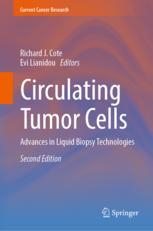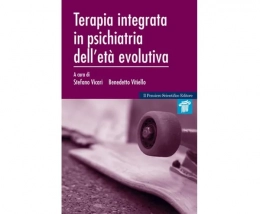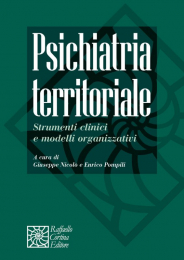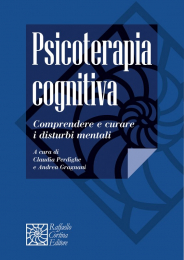Non ci sono recensioni
DA SCONTARE
It is well recognized that blood could be the optimal site for evaluating cancer, allowing easy and repeated access for determining prognosis, establishing molecular targets, evaluating the efficacy of therapy, detecting the earliest signs of recurrence, and even detecting cancer at its earliest and most curable stages. The analysis of cancer through blood samples is now known as the liquid biopsy and has been a rich source of research and clinical application. There has been an explosion of interest and progress in liquid biopsy technologies since the first edition of this book. The second edition will expand its focus to now include not only circulating tumor cells (CTC), but also other emerging aspects of the liquid biopsy, including circulating tumor DNA and methylated DNA (ctDNA, ct meDNA), ctRNA, ct miRNA, circulating tumor proteins (and other) biomarkers and circulating tumor derived exosomes (ctExosomes).
CTC play a central role in tumor dissemination and metastasis, and have been established as an important evaluative and research tool in advanced cancer, and potentially important in early stage disease. CTC defines tumor cells circulating in blood, while Disseminated Tumor Cells (DTC) refers to tumor cells identified in bone marrow. CTC/DTC are extremely rare events, even in late stage cancer, and their detection has presented enormous technical challenges, with the emergence of multiple technologies developed to address these challenges, including enrichment, identification and sophisticated analytical techniques to evaluate CTC and other cells in circulation that may also be important in the biology of metastasis.
As foundational as CTC/DTC has been, the field of liquid biopsy has expanded well beyond these analytes. The relevance of circulating nucleic acids derived from tumor cells has quickly progressed from research to the clinic. There are now well established clinical applications for using ctDNA/RNA to determine therapeutic targets, follow disease progression and detect cancer recurrence long before routine clinical methods. One of the most exciting new areas of work is the possibility of using these circulating tumor derived nucleic acids to detect cancer at its earliest and potentially most curable stages. Another new and burgeoning area is the detection and analysis of ctExosomes. These highly abundant particles which are actively secreted from tumor (and indeed all) cells represent a novel way to detect and define multiple analytes of importance, including proteins, DNA and meDNA, RNA, miRNA, and other cell components that are protected and preserved in these compact structures.
This second edition of Circulating Tumor Cells: Advances in Liquid Biopsy Technologies is entirely new and brings together leaders and innovators in the field of liquid biopsy, including basic and molecular biologists, chemists, engineers, statisticians, experts in tumor banking, test developers, research administrators and clinicians. A special feature of this book is that it includes chapters from the members of the US National Cancer Institute Liquid Biopsy Consortium. This edition also includes many of the participants of the latest international meeting on the Advances in Circulating Tumor Cells (ACTC) which is held in Greece every two years and gathers the most important liquid biopsy investigators from around the world. Thus, this edition represents the most comprehensive and up-to-date resource for those who want to further explore the exciting field of CTC and other liquid biopsy technologies. The new edition will be useful to a wide audience including scientists studying metastasis, cancer researchers, translational scientists, oncologic surgeons, medical oncologists, members of the biopharmaceutical industry, and graduate and undergraduate students studying cancer biology.
-
Front Matter
Pages i-xxi
-
Liquid Biopsy Technologies
-
Front Matter
Pages 1-1
-
CTC-Based Liquid Biopsies and Diagnostic Leukapheresis
- Nikolas H. Stoecklein
Pages 3-25
-
Minor Allele Enrichment in Liquid Biopsies Using Nuclease-Assisted Elimination of Wild-Type DNA
- Ka Wai Leong, Fangyan Yu, G. Mike Makrigiorgos
Pages 27-42
-
Exploiting Exosomes for Cancer Diagnosis and Treatment
- Fernanda G. Kugeratski, Raghu Kalluri
Pages 43-59
-
Translational Opportunities of Extracellular Vesicles in Biomedicine
- Michelle A. Garlin Politis, Hyungsoon Im, Bob S. Carter, Johan Skog, Leonora Balaj, Cesar M. Castro et al.
Pages 61-92
-
Capture and Concentration of Circulating Cancer-Associated Extracellular Vesicles
- Jeongyun Kim, Jacob Rast, Hong-Zhang He, Si-Yang Zheng
Pages 93-112
-
Circulating Tumor Cells (CTC) and Tumor-Derived Extracellular Vesicles (tdEV)
- A. Nanou, P. Beekman, A. Enciso Martinez, L. W. M. M. Terstappen
Pages 113-136
-
-
Technology Development
-
Front Matter
Pages 137-137
-
- Libere J. Ndacayisaba, Jeremy Mason, Peter Kuhn
Pages 139-169
-
Microfluidics, CTC Capture, Analysis and Expansion
- Vera Mayo, Siddarth Rawal, Richard J. Cote, Ashutosh Agarwal
Pages 171-199
-
Development and Validation of Molecular Assays for Liquid Biopsy Applications
- Evi Lianidou, Athina Markou, Areti Strati, Aliki Ntzifa
Pages 201-246
-
State of the Art in the Propagation of Circulating Tumor Cells
- Jerry Xiao, Paula R. Pohlmann, Richard Schlegel, Seema Agarwal
Pages 247-274
-
-
Biology
-
Front Matter
Pages 275-275
-
Transcriptomic Analysis of CTCs
- Monika Vishnoi, Debasish Boral, Dario Marchetti
Pages 277-299
-
Insight into Intratumoral Heterogeneity Through Single CTC Sequencing and CDX Analysis
- Marianne Oulhen, Tala Tayoun, Agathe Aberlenc, Patrycja Pawlikowska, Françoise Farace
Pages 301-325
-
Molecular Characterization of Single Circulating Tumor Cells in Breast and Ovarian Cancer
- Carolin Salmon, Paul Buderath, Rainer Kimmig, Sabine Kasimir-Bauer
Pages 327-358
-
Circulating Tumour Cell Isolation and Molecular Profiling; Potential Therapeutic Intervention
- Payar Radfar, Hamidreza Aboulkheyr Es, Arutha Kulasinghe, Jean Paul Thiery, Majid Ebrahimi Warkiani
Pages 359-385
-
- Sara Hassan, Elizabeth D. Williams, Erik W. Thompson
Pages 387-406
-
-
Clinical Application of the Liquid Biopsy
-
Front Matter
Pages 407-407
-
-
Creating an Annotated Biospecimen Resource for Liquid Biopsy Applications
- Steven J. Skates, Mark Watson, David Elashoff
Pages 409-442
-
Opportunities for Liquid Biopsies to Meet the Challenges of Precision Medicine
- Gary Kelloff, Caroline C. Sigman
Pages 443-460
-
-
Prognosis and Therapeutic Monitoring
-
Front Matter
Pages 461-461
-
- Tatjana Braun, Angelina Fink, Wolfgang Janni, Brigitte Rack
Pages 463-490
-
NGS Analysis of Plasma cfDNA and cfmiRNA Signatures in Melanoma Brain Metastasis Patients
- Romela Irene Ramos, Selena Y. Lin, Matias A. Bustos, Amy Eisenberg, Suyeon Ryu, Linh T. Tran et al.
Pages 491-510
-
- Jordan Cheng, Yiduo Hu, David T. W. Wong, Abhijit A. Patel
Pages 511-537
-
Clinical Perspectives in the Use of Liquid Biopsy in Metastatic Breast Cancer
- Lorenzo Gerratana, Carolina Reduzzi, Paolo D’Amico, Roberta Mazzeo, Saya Liz Jacob, Wenan Qiang et al.
Pages 539-564
-
Circulating Tumor Cells in Men Treated for Prostate Cancer
- Sandra M. Gaston, Yu-Ping Yang, Wensi Tao, Wendi Ma, Anis Ahmad, Mohammad Alhusseini et al.
Pages 565-574
-
The Role of Liquid Biopsy in Brain Tumors
- Austin S. Gamblin, Tiffaney Hsia, S. Maheen Batool, Sirena K. Khanna, Ana Escobedo, Emil Ekanayake et al.
Pages 575-615
-
-
The Next Frontier: Liquid Biopsy and Early Cancer Detection
-
Front Matter
Pages 617-617
-
Early Cancer Detection: Challenges and Opportunities
- Christos Patriotis, Sudhir Srivastava
Pages 619-631
-
- Megan P. Hall, Alexander M. Aravanis
Pages 633-664
-
-
Back Matter
Pages 665-668
-




